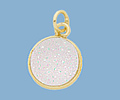
Adjusted for participant demographic factors, overall CGM satisfaction (total scale score) was moderately related to decreases in total diabetes-related distress (B = −0.31, P < 0.001) and hypoglycemic worry (B = −4.22, P = 0.03) and increases in hypoglycemic confidence (B = 0.49, P < 0.001) and overall well-being (WHO-5: B = 7.61, P = 0.02) ( Table 3). Hypoglycemia fear (worry subscale of HFS-II)Īs previously reported ( 10), satisfaction with CGM was high (mean ± SD 4.2 ± 0.4), with perceived benefits noted as very common (4.2 ± 0.5) and perceived hassles as relatively rare (1.7 ± 0.5). ≥1 severe hypoglycemic events in previous 12 months The resulting adjusted P values are reported.

Given the large number of analyses, we adjusted for multiple comparisons by using the Benjamini-Hochberg procedure using a false discovery rate of 0.05 ( 17). Finally, within the CGM group, associations between CGM satisfaction with change in QOL and glycemic control were assessed in linear regression models adjusted for clinical site. Exploratory analyses assessed for interaction between the treatment effect on the change in QOL from baseline to 24 weeks and patient demographic baseline factors by including interaction terms in regression models. Cohen’s d effect size was calculated to determine the magnitude of the treatment group differences. Analyses were repeated to include potential confounding variables of age, sex, and diabetes duration as covariates.

The primary analysis was a treatment group comparison of the change in quality of life outcomes from baseline to 24 weeks that used linear regression models adjusted for baseline levels of the outcome and clinical site as a random effect. The HCS is a nine-item questionnaire that yields a total mean-item score and evaluates the degree to which patients feel able, secure, and comfortable about their ability to stay safe from hypoglycemic-related problems ( 15).Īnalyses followed the intention-to-treat principle. The worry subscale of the revised, 18-item HFS-II assesses the frequency of common concerns regarding hypoglycemia ( 14), with items summed for a total scale score. The DDS yields a total mean-item score with four moderately intercorrelated subscale scores: distress concerning emotional burden, regimen management, problems regarding emotional support from others, and concerns about obtaining satisfactory medical care. The DDS is a 17-item scale that assesses worries and concerns specifically related to diabetes and its management and has been shown to be a good marker of diabetes-related QOL ( 13).

Three diabetes-specific QOL self-report measures were completed: the Diabetes Distress Scale (DDS), the Hypoglycemia Fear Survey (HFS-II), and the Hypoglycemic Confidence Scale (HCS).

Therefore, we also expected that the CGM group would report broad satisfaction with the device and that such satisfaction would be associated with QOL improvement as well as markers of broad glycemic improvement. Such an outcome seemed probable because current CGM technology allows the individual to accomplish something that is not possible with SMBG: to quickly recognize and respond to glucose fluctuations as needed (and now with devices that are more reliable and less burdensome), thereby 1) aiding the individual to regain or enhance a sense of personal control over glucose control and, more largely, diabetes and 2) as overall glucose control improves, leading more directly to broad physical and psychosocial benefits, such as greater energy, better mood, or an overall sense of well-being. We hypothesized that this newer generation of CGM leads to greater improvements in QOL markers, especially in diabetes-specific measures (which are known to be more sensitive to change than non–diabetes-specific measures), than what occurs in individuals who use SMBG alone. In the current study, we examined the QOL measures from the DIAMOND study, both diabetes specific and non–diabetes specific, administered to participants at baseline and at 24 weeks.


 0 kommentar(er)
0 kommentar(er)
